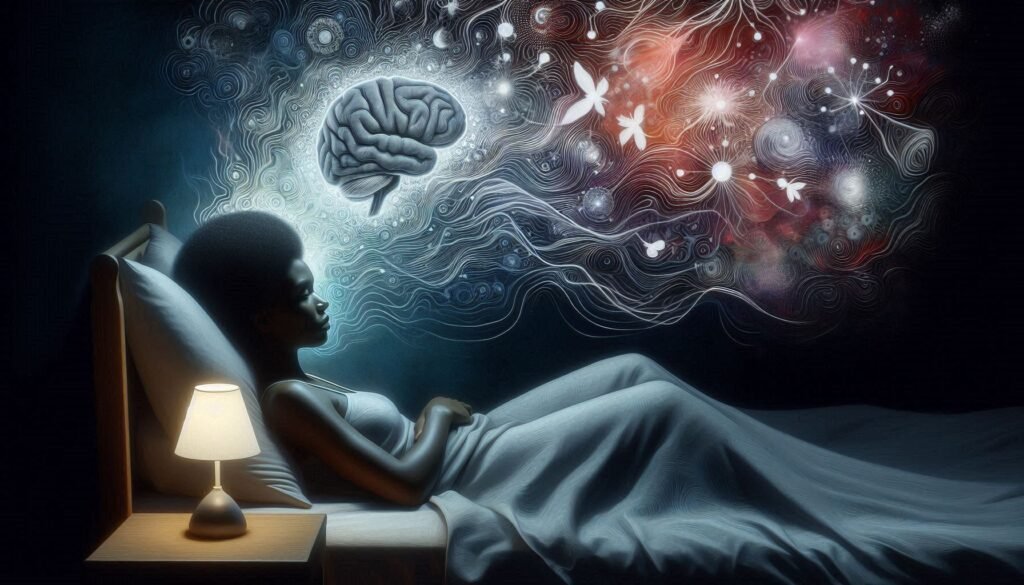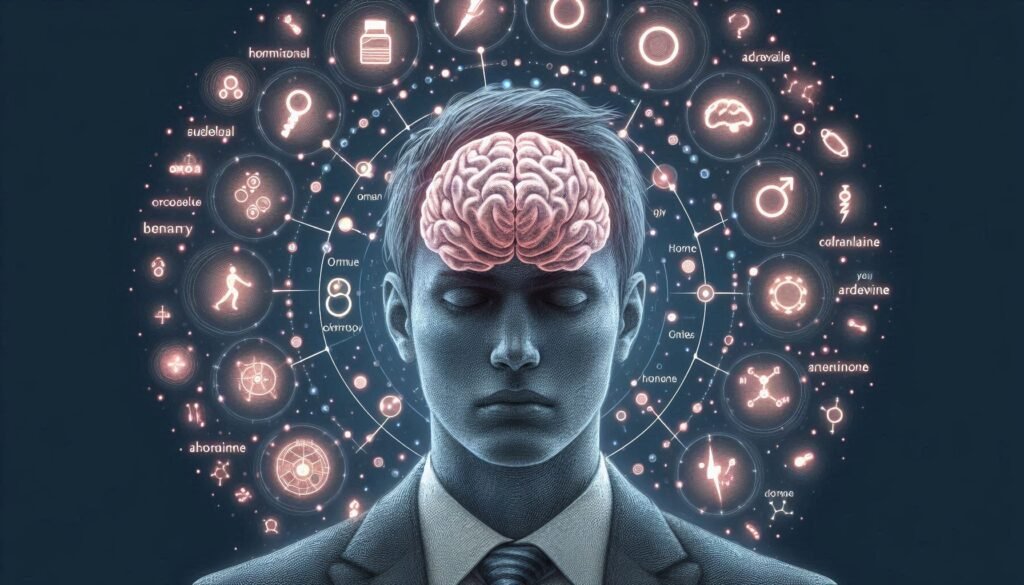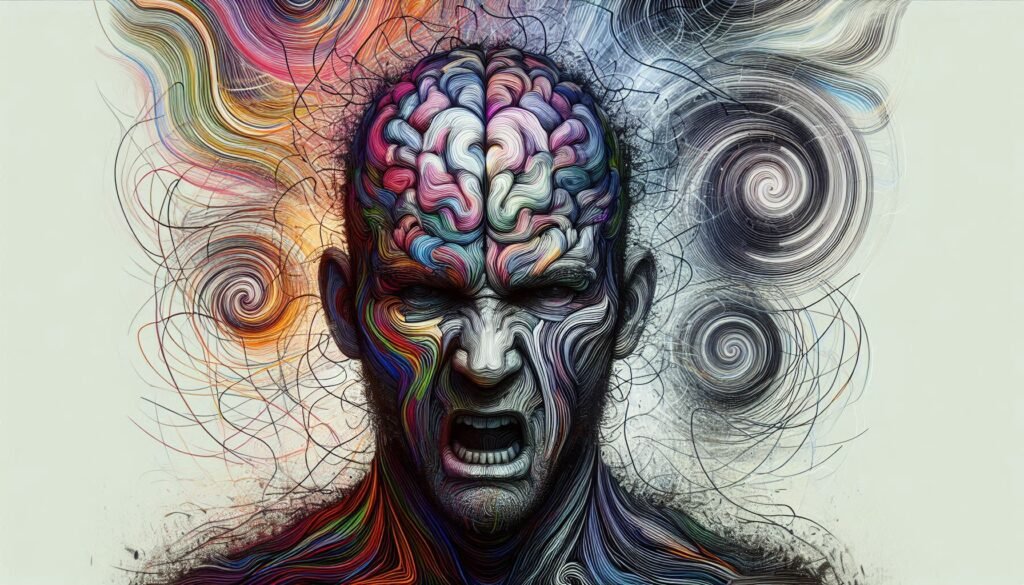Concussions are often seen as sports-related injuries, but their effects extend far beyond the playing field. One of the more insidious consequences of a concussion is how it disrupts sleep patterns, leading to various disturbances that can hinder recovery and overall well-being. Sleep disturbances associated with concussions affect both physical and mental health, creating challenges for individuals striving to regain their pre-injury lives.
Whether you’re an athlete or someone who has experienced a head injury outside of sports, understanding how concussions impact your sleep-wake cycles is crucial. This blog post will explore these complex relationships in detail—from common sleep disorders that follow concussive events to effective strategies for improving rest during recovery. Join us as we delve into this vital topic and uncover solutions tailored specifically for those grappling with post-concussion sleep issues.

The Impact of Concussions on Sleep-Wake Cycles
Concussions significantly disrupt sleep-wake cycles, leading to a cascade of effects on overall health. The brain’s complex communication pathways are altered after an injury, resulting in difficulties regulating the natural circadian rhythm. This disruption can lead to challenges falling asleep or maintaining restful slumber.
Many individuals report experiencing excessive daytime fatigue following a concussion. This occurs because their bodies struggle to achieve restorative sleep during the night. As a result, daily activities become increasingly challenging, impacting both physical performance and cognitive function.
Moreover, hormonal changes triggered by concussions can also affect sleep patterns. Hormones like cortisol may spike due to increased stress levels associated with recovery. These fluctuations can further complicate efforts to establish a consistent sleep routine.
Understanding the impact of concussions on sleep is essential for those recovering from these injuries. Addressing these disturbances early on can pave the way for improved healing and quality of life as patients navigate their path toward recovery.
Common Sleep Disorders Following Concussive Injuries
Sleep disturbances associated with concussions can manifest in various forms. Many individuals experience insomnia, characterized by difficulty falling asleep or staying asleep. This disruption often leaves them feeling fatigued during the day, further complicating recovery from the injury.
Another prevalent issue is hypersomnia, where patients struggle with excessive daytime sleepiness. Despite sleeping longer hours at night, they may still feel unrefreshed and lethargic throughout the day. This paradox can be frustrating for those affected.
Nightmares and vivid dreams are also common after a concussion. These troubling sleep experiences can lead to anxiety about bedtime, exacerbating existing sleep issues. As a result, many individuals may develop an aversion to going to bed.
Some patients report experiencing restless leg syndrome or periodic limb movement disorder following their head trauma. These involuntary movements disrupt quality sleep and contribute to feelings of unrestfulness upon waking up each morning.
Insomnia and Hypersomnia in Post-Concussion Patients
Insomnia and hypersomnia are common sleep disturbances associated with concussions, significantly impacting recovery. Post-concussion patients often struggle to initiate or maintain sleep, leading to chronic insomnia. Factors such as pain, anxiety, and cognitive disruptions contribute to these difficulties.
On the other hand, some individuals experience hypersomnia—excessive daytime sleepiness that can disrupt daily activities. Unlike typical fatigue from lack of sleep, this condition leaves patients feeling unrefreshed despite long hours spent sleeping.
The complexities lie in how these two conditions manifest simultaneously in some cases. A patient might have trouble falling asleep at night while battling overwhelming drowsiness during the day. This duality complicates treatment approaches and prolongs overall recovery time.
Understanding the relationship between concussions and these specific sleep disorders is crucial for effective management strategies. Tailoring a treatment plan requires addressing both insomnia and hypersomnia symptoms specifically for each individual’s situation.
Altered Sleep Architecture: Changes in Sleep Stages Post-Concussion
Concussions can significantly disrupt sleep architecture, which refers to the structure and pattern of sleep cycles. Individuals who have suffered a concussion often experience changes in the duration and quality of different sleep stages. This alteration can lead to less restorative sleep.
Research indicates that post-concussion patients may spend less time in deep sleep (slow-wave sleep), a crucial phase for physical recovery and memory consolidation. Without adequate deep sleep, cognitive functions can decline further, exacerbating feelings of fatigue and confusion.
Rapid eye movement (REM) sleep is also affected after head trauma. REM is essential for emotional regulation and creativity. When this stage diminishes, it can lead to mood disturbances such as anxiety or irritability.
These shifts in how we cycle through various stages of slumber highlight the intricate relationship between brain health and rest following an injury. Addressing these changes becomes vital for anyone recovering from a concussion to support overall well-being.
Circadian Rhythm Disruptions After Head Trauma
Circadian rhythms are the body’s natural clock, regulating sleep-wake cycles over a 24-hour period. After experiencing head trauma, many individuals report significant disruptions to these rhythms. This can lead to difficulties in both falling asleep and waking up at appropriate times.
The brain injury may impact the suprachiasmatic nucleus, which plays a crucial role in maintaining circadian functions. Consequently, patients often find themselves feeling drowsy during daytime hours while battling insomnia at night. These irregularities can be frustrating and further complicate recovery from concussion-related symptoms.
Altered light exposure is another factor that affects circadian patterns post-injury. Many concussion sufferers avoid bright lights due to sensitivity but inadvertently limit their exposure to natural light sources that help regulate circadian signals.
Addressing these disruptions requires awareness of one’s environment and habits. Establishing a consistent daily schedule for sleeping and waking can help realign the body’s internal clock after an injury.
The Role of Melatonin in Concussion-Related Sleep Issues
Melatonin is a hormone produced by the pineal gland, primarily responsible for regulating sleep-wake cycles. Its production peaks at night, signaling to the body that it’s time to rest. In individuals recovering from concussions, melatonin levels can be disrupted, leading to significant sleep disturbances.
Research indicates that concussion-related changes in brain function may impair natural melatonin secretion. This disruption can make falling asleep and maintaining restful sleep challenging for those affected. As a result, many post-concussion patients report difficulty achieving quality restorative sleep.
Supplementing with melatonin has emerged as an option for managing these issues. Studies show that melatonin supplementation can help regulate the circadian rhythm and improve overall sleep quality in individuals experiencing insomnia or irregular sleep patterns after a concussion.
While it’s not a one-size-fits-all solution, consulting healthcare professionals about appropriate dosages can lead to positive outcomes. Tailored approaches considering individual needs are essential for effective recovery strategies related to concussion-induced sleep disturbances.
Cognitive Behavioral Therapy for Insomnia (CBT-I) in Concussion Recovery
Cognitive Behavioral Therapy for Insomnia (CBT-I) is an effective approach for addressing sleep disturbances associated with concussions. This structured program helps individuals identify and change thoughts and behaviors that contribute to insomnia. By focusing on the root causes of sleep issues, CBT-I can lead to significant improvements in overall sleep quality.
One key component of CBT-I is sleep education. Patients learn about normal sleep patterns and how concussions can disrupt these cycles. Understanding what happens during rest empowers individuals to make informed choices regarding their bedtime routines.
Another crucial aspect involves developing better sleeping habits through techniques like stimulus control and relaxation training. These strategies encourage patients to associate their bed with restful activities rather than stress or anxiety.
Moreover, CBT-I emphasizes maintaining a consistent sleep schedule, which is vital for recovery after a concussion. With guidance from trained professionals, patients can effectively navigate their post-concussion journey towards healthier sleep patterns using this therapeutic method.
Sleep Hygiene Practices for Improving Post-Concussion Sleep
Establishing good sleep hygiene is essential for improving sleep disturbances associated with concussions. Creating a consistent bedtime routine helps signal to your body that it’s time to wind down. Aim for the same sleep and wake times every day, even on weekends, to regulate your internal clock.
The sleeping environment plays a crucial role in quality rest. Keep your bedroom dark, cool, and quiet. Consider blackout curtains or white noise machines if necessary. Reducing exposure to screens before bed can further enhance melatonin production, leading to better sleep onset.
Limit stimulants like caffeine and nicotine in the hours leading up to bedtime. Opt for calming activities such as reading or gentle stretching instead of more stimulating tasks. This shift not only prepares the mind but also relaxes the body.
Physical activity during the day promotes healthier sleep patterns at night. However, avoid vigorous exercise close to bedtime since it may have an opposite effect on your ability to fall asleep quickly.
Pharmacological Interventions for Concussion-Related Sleep Disturbances
Pharmacological interventions can play a significant role in managing sleep disturbances associated with concussions. Various medications may help alleviate symptoms, but they should always be considered alongside other treatment options. Physicians often prescribe these drugs after thoroughly assessing the individual’s condition and discussing potential benefits and risks.
Commonly prescribed medications include melatonin supplements, which can aid in regulating sleep cycles disrupted by concussion. Melatonin is a natural hormone that signals the body when to sleep, making it beneficial for those struggling with insomnia or erratic sleep patterns.
Antidepressants are another option, particularly if anxiety or depression accompanies post-concussion symptomatology. These medications not only improve mood but also promote better quality of sleep through their sedative properties.
Benzodiazepines may be used sparingly to address acute insomnia; however, this approach requires caution due to possible dependency issues. Each patient must work closely with healthcare providers to find the most effective pharmacological strategy tailored to their unique needs.
Long-Term Management of Sleep Issues in Chronic Post-Concussion Syndrome
Long-term management of sleep issues in chronic post-concussion syndrome requires a multifaceted approach. It’s essential to monitor and address both physical and mental health components. Regular follow-ups with healthcare professionals can help track recovery progress.
Establishing a consistent sleep routine is crucial for patients suffering from ongoing disturbances. This includes setting fixed wake-up times, creating relaxing pre-sleep rituals, and ensuring the sleep environment is conducive to rest.
In addition to behavioral changes, engaging in mindfulness practices such as meditation or yoga may provide significant benefits for managing stress and anxiety that often accompany concussion-related insomnia.
Collaboration with specialists like neurologists or sleep therapists can facilitate tailored treatment plans that encompass cognitive behavioral therapy and pharmacological options when necessary. Being proactive about lifestyle choices—such as avoiding stimulants before bedtime—is also important.
Education on the potential impact of concussions on long-term well-being empowers individuals facing these challenges to seek appropriate care and strategies for improvement. Adopting a holistic perspective will optimize recovery while fostering resilience against future episodes of sleep disturbance associated with concussions.


